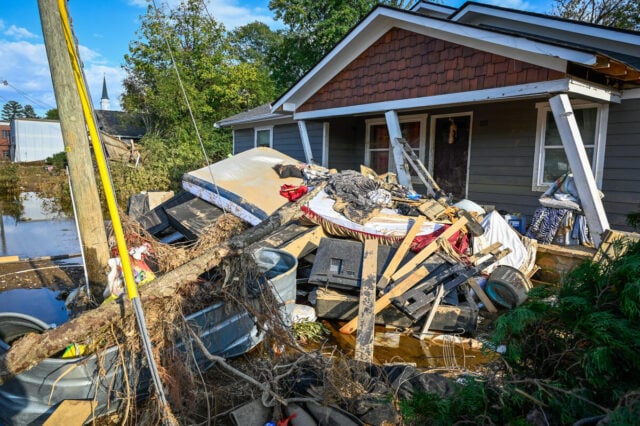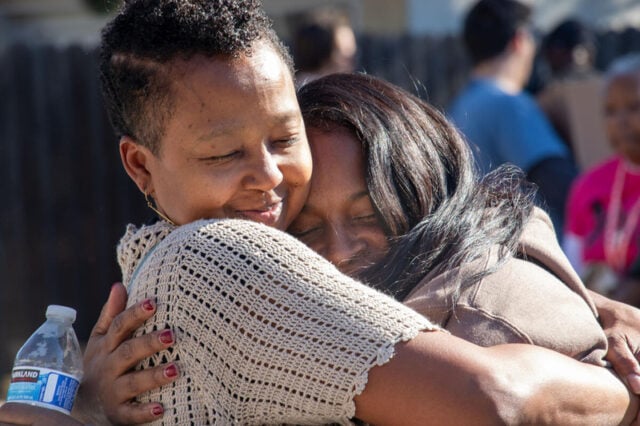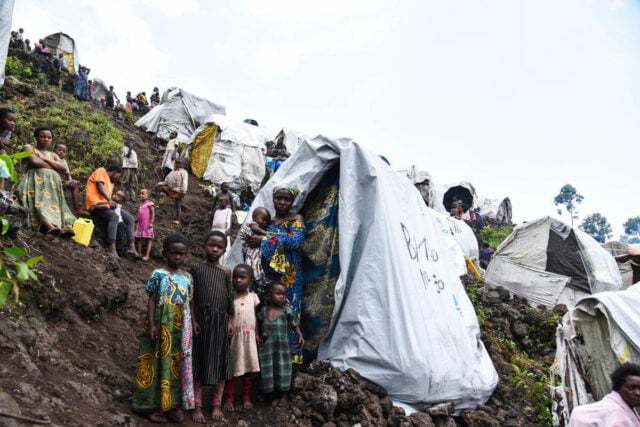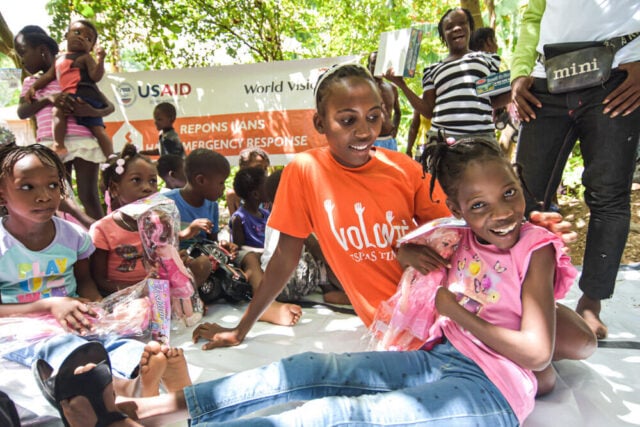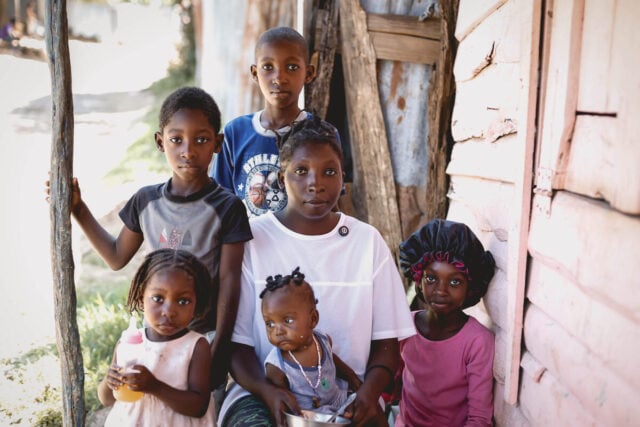A North Carolina couple lost their dream home when Hurricane Helene devastated their community. Through donated supplies and connections with a local churches and construction company, World Vision is helping them begin to rebuild.
News & Stories
Natural Disasters
Extreme weather: Helping communities recover and rebuild
Extreme weather events threaten lives and livelihoods worldwide. Discover how World Vision helps communities recover, rebuild, and prepare for future disasters through emergency relief, resilience-building, and sustainable solutions.
Los Angeles fires: Hurting and healing together
After fires ravaged Los Angeles, California, in January 2025, World Vision worked to provide relief supplies. We helped over 21,800 people with emergency relief supplies. Here are some of the stories from the response.
Delivering hope: Hurricanes Helene and Milton disaster relief
Back-to-back hurricanes have devastated the Southeastern U.S. Hurricane Helene made landfall in Florida’s Big Bend on Sept. 26, 2024, followed by Hurricane Milton, a Category 3 storm, which struck near Siesta Key on Oct. 9. Communities across the Southeast experienced severe damage, and World Vision responded immediately with critical supplies. In partnership with local churches and organizations, we delivered essential items such as clean water, generators, and more. Learn how World Vision is helping to rebuild lives and restore hope in the aftermath of these catastrophic storms.
Hurricane Helene: Facts, FAQs, and how to help
Hurricane Helene, a catastrophic Category 4 storm, made landfall in Florida’s Big Bend region on September 26, 2024, with maximum sustained winds of 140 mph. The storm triggered mass evacuations, with over 5 million people fleeing coastal areas along the East Coast. At least 227 people lost their lives in the extreme weather event. Learn how World Vision is supporting affected communities.
Hurricane Milton: Facts, FAQS, and how to help
Hurricane Milton, a Category 3 storm, slammed into Florida’s west coast on October 9, 2024 with 120 mph winds, bringing severe flooding, storm surges, and widespread power outages. As it weakened to a Category 1, Milton continued to cause significant damage in central Florida. Learn how World Vision is supporting affected communities in their recovery and rebuilding efforts.
California fires: Facts, FAQs, and how to help
As wildfires spread across the greater Los Angeles area, World Vision is working with local partners like the Los Angeles Dream Center and area churches to help provide food, water, and other necessities to people affected by the California fires.
DRC conflict: Facts, FAQs, and how to help
A recent surge in violence in the Democratic Republic of the Congo (DRC) threatens the lives of millions of children who are already suffering from hunger, disease outbreaks, natural disasters, and poverty. Learn more about the DRC’s conflict and current situation and about World Vision’s response to help impacted children and families.
Haiti earthquake: Facts, FAQs, and how to help
In the wake of the devastating earthquake that struck Haiti on August 14, 2021, and the years of compounding challenges, the country continues to face a complex path to recovery. Learn how World Vision is making a difference in the lives of vulnerable Haitians after the magnitude 7.2 quake, which claimed thousands of lives and caused widespread injuries and destruction.
Haiti crisis: Facts, FAQs, and how to help
The current situation in Haiti is dire, with escalating gang violence, sociopolitical instability, and a cholera epidemic all threatening vulnerable populations. Learn more about the situation that is affecting millions of people in Haiti and how World Vision is responding to the crisis.

